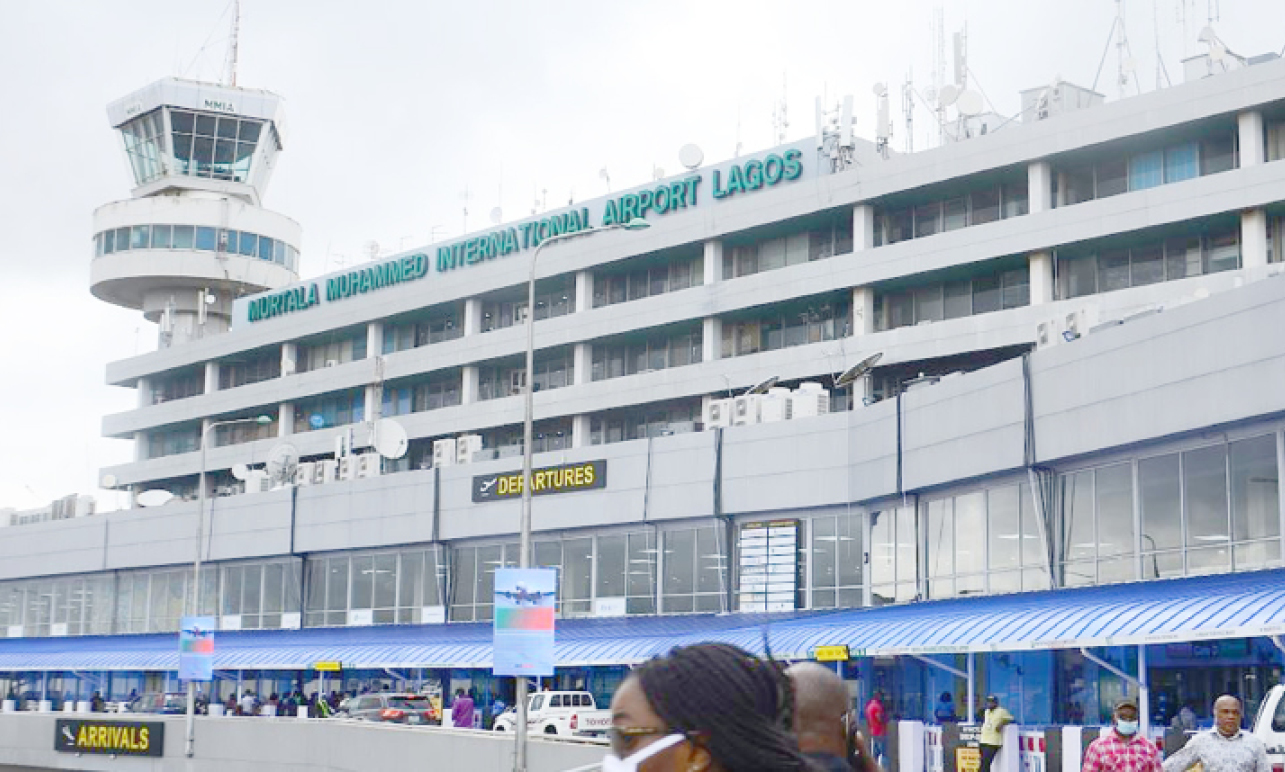Forex scarcity shrinks domestic airlines’ fleet by over 50%
The active fleet of domestic airlines has shrunk in recent times leaving many of the airlines gasping for breath, findings by Daily Trust have shown. From a fleet of over 100 aircraft, less than 50 are active while many of the planes are either grounded or have gone for maintenance abroad. Many of the airlines […]

Murtala Muhammed International Airport
The active fleet of domestic airlines has shrunk in recent times leaving many of the airlines gasping for breath, findings by Daily Trust have shown.
From a fleet of over 100 aircraft, less than 50 are active while many of the planes are either grounded or have gone for maintenance abroad.
Many of the airlines are said to be facing acute shortage of foreign exchange to carry out scheduled maintenance abroad while airlines that already sent their aircraft abroad were accruing millions of dollars in demurrage in addition to the actual cost of maintenance.
Virtually all the airlines are affected in the current impasse worsened by the hike in foreign exchange with the dollar hitting an all-time high of N1,536 to a dollar in the official market.
A comprehensive check (C-check) on a Boeing aircraft for instance costs around $1m to $1.5m which is about N1.5bn and N2bn. It is expected to be carried out between one to two years depending on the maintenance programme for the aircraft.
For a D-check which is the most intensive and comprehensive check on an aircraft, the cost could be higher as such a check involves structural check of the aircraft.
With the foreign exchange scarcity and the depreciation of the naira, many airlines are unable to carry out scheduled maintenance of the aircraft, leaving many of the planes on ground.
A visitor to the domestic terminals of the Murtala Muhammed Airport (MMA), Lagos, would be regaled with dozens of aircraft grounded because they are due for maintenance.
While our correspondent could not ascertain the number of aircraft on ground, sources in the industry said the operating aircraft of domestic airlines have reduced by more than half in recent times.
One of the domestic carriers, Azman Air, had vowed to resume domestic operations last year but only one of its three aircraft on maintenance had arrived.
A source in the industry said, “The number of aircraft on ground that are due for maintenance or those that have been sent for maintenance abroad is more than the operating aircraft.”
According to the source, the development has disrupted the schedules of the airlines leading to frequent flight disruptions.
The Airline Operators of Nigeria (AON) at the weekend cried out that they were facing existential threat, citing difficulty in raising foreign exchange to carry out maintenance and other activities that are essentially dollar-based.
AON spokesman, Obiora Okonkwo, said, “We are making losses on factors that are beyond our control. We are not only faced with the problem of scarcity of dollars; even the aviation ecosystem is feeling the heat. Handling companies have increased the cost of their services, airports have increased their charges and those that service the aircraft have also increased the cost of their services.”
The Nigeria Civil Aviation Authority (NCAA) recently directed airlines to align their schedules with the existing capacity to minimise the cases of flight disruptions with the attendant inconveniences to passengers.
Chief Executive Officer of Aero Contractors, Capt. Ado Sanusi, said, “The forex issue has affected those that have planned to bring their airplanes back because now they have to pay more naira to get their aircraft back, especially those that have taken their airplanes out of the country to do maintenance.”
